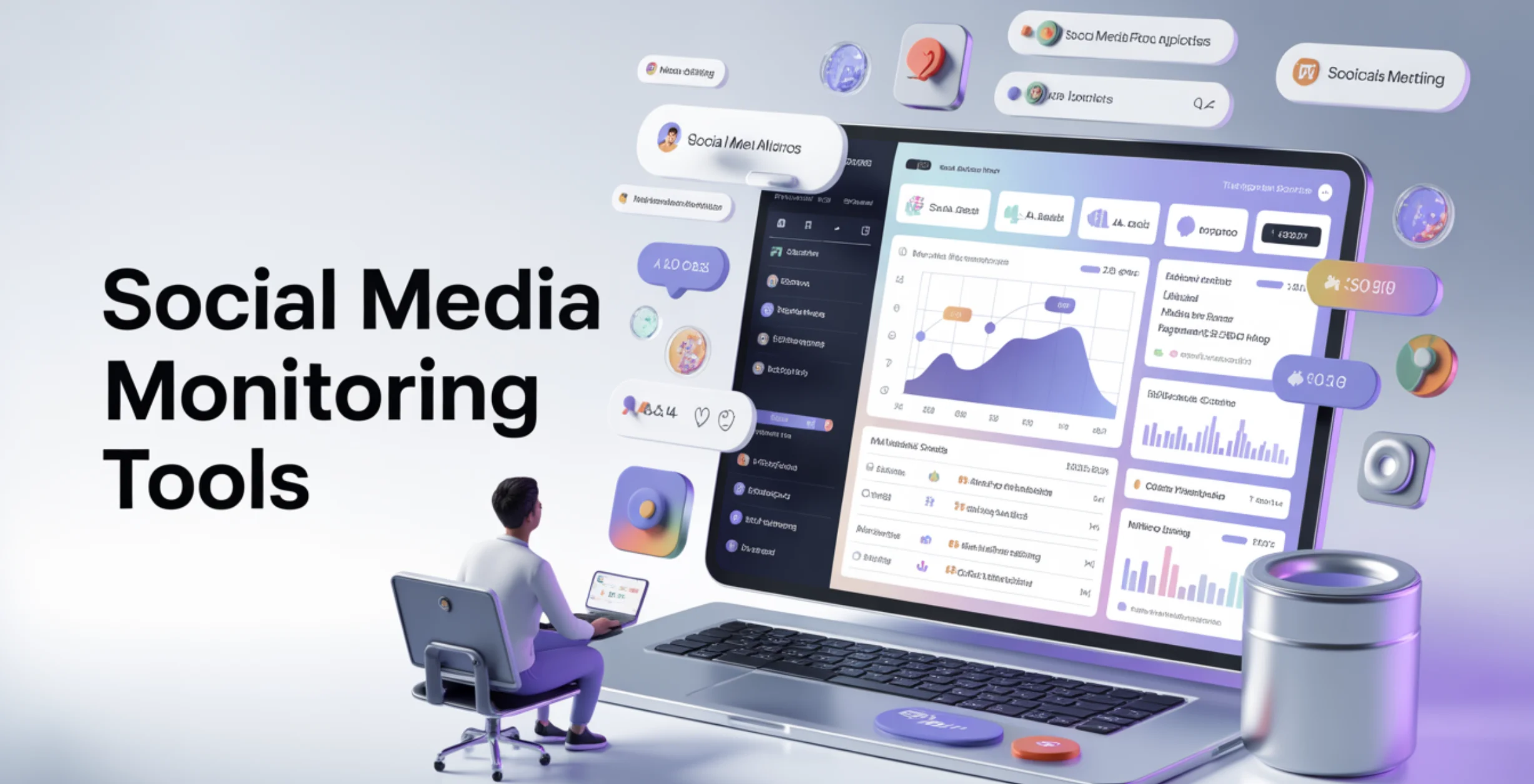AI is changing how we manage urgent searches during stressful moments. Whether it’s after a car accident or during another critical time, intelligent systems can predict and group search queries, offering relevant answers instantly.
By connecting users to tailored content, chatbot workflows, and paid ads, these tools create smoother experiences. With AI Journey Mapping, privacy-safe data, and YMYL safeguards in place, users benefit from trusted, secure solutions. Stick around to uncover how AI can optimize search during these high-stakes moments.
Predicting Search Intent After High-Stress Events

High-stress situations, such as car accidents or medical emergencies, often prompt frantic online searches. Users need quick, accurate answers, which can be overwhelming to deliver without the right tools. AI simplifies this by analyzing patterns and predicting what people are most likely to search for during these moments.
Let’s take auto collisions as an example. Knowing what’s involved in vehicle repair after an accident lets you understand how search behavior unfolds in real time. For instance, after a crash, common queries might include:
- Insurance claims process
- Cost of car repairs
- Total loss thresholds
- Nearest repair shops
AI tools cluster these queries into categories, offering a clearer picture of intent. By mapping these journeys, businesses can guide users to tailored resources or services.
For example, a chatbot could instantly recommend nearby repair shops, while paid ads might highlight emergency towing services. This approach not only eases the user’s stress, but also ensures businesses address critical needs effectively.
Key benefits of AI-driven search mapping include:
- Faster response to urgent questions
- Higher engagement through relevant suggestions
- Improved user satisfaction and trust
Understanding these patterns enables businesses to connect users with timely solutions, improving outcomes when accuracy and speed matter most.
Building AI-Driven Query Clusters for Relevance
AI groups related queries into clusters, revealing trends and patterns that help businesses understand user intent. This is particularly valuable during high-stress moments when searches are fragmented and urgency-driven.
Imagine a driver searching after an accident. Their queries may span multiple concerns, such as:
- What to do after a crash
- How to file an insurance claim
- Repair cost estimates
- Determining if the car is totaled
AI-driven clustering organizes these scattered searches into actionable categories. By doing so, businesses can craft resources, chat workflows, and PPC campaigns that speak directly to each user’s need.
These query clusters also enable predictive insights. If one user searches for “total loss thresholds,” they might soon need information on “choosing a repair shop.” Anticipating these needs ensures a smooth process.
Benefits of using AI for query clustering include:
- Better alignment between user needs and resources
- Personalized content delivery at the right moment
- Enhanced efficiency for support teams managing incoming queries
This structured approach simplifies chaotic searches and turns them into logical, user-centered journeys. By focusing on relevance, businesses provide clarity during moments when users need it most.
Connecting AI Insights to Content and Chat Workflows

AI insights guide how businesses create content and interact with users, ensuring relevant answers reach people at critical moments. By aligning query clusters with tailored resources, companies can provide clarity when it’s needed most.
Take the example of a homeowner dealing with sudden flooding. AI insights connect their searches to:
- Articles on emergency water extraction techniques
- FAQs about insurance coverage for water damage
- Chat workflows offering immediate help, such as locating nearby restoration services
Chatbots play an essential role in this process. They integrate with AI to streamline user support. For instance, if someone searches for “how to stop water from spreading,” the bot can recommend immediate steps, connect them to emergency plumbers, or link them to drying equipment rentals.
AI also strengthens PPC campaigns. Real-time data ensures ads focus on urgent needs, like promoting restoration companies or providing tips for damage assessment.
Key benefits of connecting AI insights include:
- Faster response times for urgent situations
- Relevant, actionable guidance that minimizes stress
- Smoother user journeys from search to solution
AI bridges the gap between frantic searches and practical resolutions, helping people feel supported during moments of crisis.
Safeguarding Privacy and Security in Sensitive Searches

High-stress situations often involve sensitive personal information, making privacy and security essential. Users searching for help during emergencies need to trust that their data is handled safely and ethically.
AI systems designed for sensitive searches follow strict privacy measures, ensuring compliance with laws like GDPR and CCPA. These safeguards protect users while still delivering valuable insights. For example, anonymized data helps predict needs without exposing personal details.
Imagine someone experiencing a medical emergency. They might search for:
- Local urgent care centers
- Symptoms of a condition they’re experiencing
- Costs for immediate treatment options
AI platforms ensure these searches remain confidential. Encryption prevents unauthorized access, while real-time processing reduces the need to store sensitive information long-term. Businesses that use these privacy-safe practices foster trust with users during vulnerable moments.
Benefits of prioritizing privacy in AI-driven searches include:
- Increased user confidence in engaging with online tools
- Compliance with regulatory standards, avoiding legal risks
- Ethical handling of data to prevent misuse or breaches
By safeguarding privacy, businesses can support users without compromising security. This trust is especially crucial when people are seeking help in emotionally or physically stressful circumstances.
Using PPC Copy to Address Urgent Needs
Pay-per-click (PPC) advertising is part of a $335 billion market, and its commercial potential is enhanced by the fact that it becomes a lifeline during high-stress moments. Thoughtfully crafted ad copy, guided by AI insights, ensures users see helpful, action-oriented solutions when they need them most.
Picture someone dealing with a sudden power outage at home. Their searches may focus on:
- Emergency electricians near them
- Temporary power solutions like generators
- Tips for restoring power safely
AI identifies these urgent queries and informs PPC campaigns, enabling businesses to display highly relevant ads. For instance, a power restoration company could run ads highlighting 24/7 emergency services or promote content explaining steps to stay safe during outages.
Effective PPC ad copy prioritizes:
- Clear and concise language that speaks directly to the problem
- Urgency, such as same-day service availability
- Actionable next steps, like booking an appointment or calling a hotline
AI ensures ad placement matches user intent, reducing wasted impressions and increasing click-through rates. This approach improves user satisfaction while driving results for businesses.
By tailoring PPC campaigns to high-stress scenarios, businesses connect users with fast, reliable solutions, minimizing frustration and helping them navigate challenging situations with greater ease.
Measuring AI’s Impact Through Uplift Experiments
Understanding the effectiveness of AI-driven solutions requires measurable outcomes. Uplift experiments are a reliable way to assess how AI improves user engagement and overall results during high-stress moments.
These experiments compare the performance of AI-enhanced tools against a control group without AI interventions. For example, during a flight cancellation crisis, users may search for:
- How to rebook flights
- Compensation policies for delays
- Alternatives for same-day travel
AI could guide users toward relevant resources faster than standard methods. Uplift experiments would measure differences in metrics like:
- Time taken to resolve user queries
- Engagement rates with recommended solutions
- Conversion rates for services like rebooking assistance
By testing these factors, businesses identify where AI delivers the most value. Uplift experiments also help fine-tune AI tools, ensuring continuous improvement over time.
Key advantages of using uplift experiments include:
- Clear data showing AI’s contribution to better outcomes
- Insights for optimizing user workflows and resources
- Stronger business cases for further AI investment
Measuring impact ensures that AI remains a meaningful tool, providing not just faster responses but also solutions that genuinely improve user experiences during critical moments.
Designing for Trust: YMYL Compliance in Critical Moments
Your Money or Your Life (YMYL) content carries significant responsibility, especially during high-stress searches. AI tools must align with YMYL guidelines to ensure that users receive accurate, safe, and trustworthy information when it matters most.
Imagine someone facing a financial crisis. Their searches may include:
- Steps to consolidate debt
- Eligibility for emergency loans
- Managing overdue payments
For these sensitive topics, YMYL compliance prioritizes:
- Accurate, fact-checked information to prevent harm
- Transparent sources that build credibility
- Ethical AI design that avoids misleading or manipulative practices
AI can help identify authoritative sources to connect users with the best answers. For example, search results for “emergency loans” might prioritize government resources or verified nonprofit organizations. AI also reduces risk by flagging unverified or potentially harmful content, helping keep users away from scams.
Benefits of YMYL-compliant AI systems include:
- Greater user trust in search tools and recommendations
- Reduced misinformation during critical searches
- Enhanced brand reputation through ethical practices
By designing with YMYL in mind, businesses create search experiences that not only deliver solutions but also safeguard users in vulnerable situations. This approach ensures accuracy, trust, and responsibility are central to AI-driven efforts.
The Bottom Line
AI Journey Mapping transforms how we support users during high-stress moments, providing clarity, speed, and trust when it’s needed most. From clustering searches to safeguarding privacy, it ensures critical needs are met effectively.
By aligning AI with ethical practices and user-focused solutions, businesses create experiences that truly make a difference in tough times.






